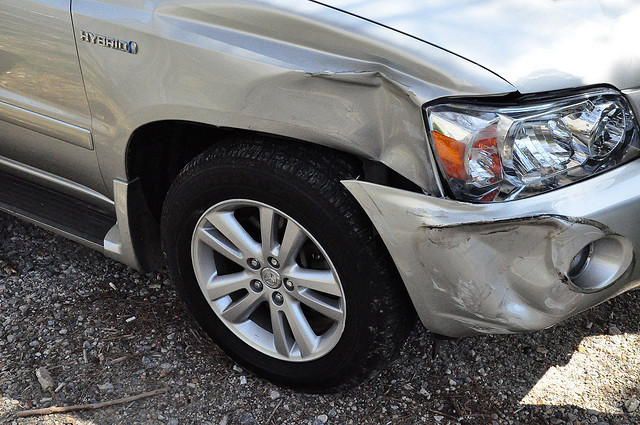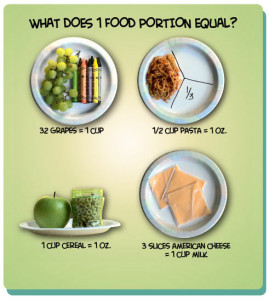Which ones have you read to your children?
#1: Where the Wild Things Are by Maurice Sendak (1963)
#2: Goodnight Moon by Margaret Wise Brown (1947)
#3: The Very Hungry Caterpillar by Eric Carle (1979)
#4: The Snowy Day by Ezra Jack Keats (1962)
#5: Don’t Let the Pigeon Drive the Bus by Mo Willems (2003)
#6: Make Way for Ducklings by Robert McCloskey (1941)
#7: Harold and the Purple Crayon by Crockett Johnson (1955)
#8: Madeline by Ludwig Bemelmans (1939)
#9: Millions of Cats by Wanda Gag (1928)
#10: Knuffle Bunny: A Cautionary Tale by Mo Willems (2004)
#11: The Story of Ferdinand by Monroe Leaf, ill. Robert Lawson (1936)
#12: Good Night Gorilla by Peggy Rathmann (1994)
#13: Blueberries for Sal by Robert McCloskey (1948)
#14: The True Story of the Three Little Pigs by Jon Scieszka, ill. Lane Smith(1989)
#15: Lilly’s Purple Plastic Purse by Kevin Henkes (1996)
#16: Owl Moon by Jane Yolen (1987)
#17: Caps for Sale by Esphyr Slobodkina (1947)
#18: In the Night Kitchen by Maurice Sendak (1970)
#19: Miss Rumphius by Barbara Cooney (1982)
#20: George and Martha by James Marshall (1972)
#21: Bark, George by Jules Feiffer (1999)
#22: The Monster at the End of this Book by Jon Stone, ill. by Mike Smollin (1971)
#23: Bread and Jam for Frances by Russell Hoban, illustrated by Lillian Hoban (1964)
#24: Chicka Chicka Boom Boom by Bill Martin, Jr. and John Archambault, ill. Lois Ehlert (1989)
#25: The Little House by Virginia Lee Burton (1942)
#26: Corduroy by Donald Freeman (1976)
#27: The Tale of Peter Rabbit by Beatrix Potter (1902)
#28: Alexander and the Terrible, Horrible, No Good, Very Bad Day by Judith Viorst, ill. Ray Cruz(1972)
#29: Sylvester and the Magic Pebble by William Steig (1969)
#30: Brown, Bear, Brown Bear, What do you See? by Bill Martin Jr., ill. Eric Carle (1967)
#31: No, David by David Shannon (1998)
#32: Click Clack Moo, Cows That Type by Doreen Cronin, ill. by Betsy Lewin (2000)
#33: Cloudy with a Chance of Meatballs by Judi and Ron Barrett (1978)
#34: Olivia by Ian Falconer (2000)
#35: Tikki Tikki Tembo by Arlene Mosel, ill. Blair Lent (1968)
#36: Stinky Cheese Man and Other Fairly Stupid Tales by Jon Scieszka, ill. Lane Smith (1992)
#37: Eloise by Kay Thompson, ill. Hilary Knight (1955)
#38: Harry the Dirty Dog by Gene Zion, ill. by Margaret Bloy Graham (1956)
#39: The Napping House by Audrey and Don Wood (1984)
#40: Mike Mulligan and His Steam Shovel by Virginia Lee Burton (1939)
#41: The Relatives Came by Cynthia Rylant, ill. Stephen Gammell (1985)
#42: Curious George by H.A. Rey (1941)
#43: Tuesday by David Wiesner (1991)
#44: Strega Nona by Tomie de Paola (1975)
#45: The Polar Express by Chris Van Allsburg (1985)
#46: Scaredy Squirrel by Melanie Watt (2006)
#47: If You Give a Mouse a Cookie by Laura Numeroff (1985)
#48: The Big Orange Splot, by Daniel Pinkwater (1977)
#49: King Bidgood is in the Bathtub by Audrey Wood, ill. Don Wood (1985)
#50: Black and White by David Macaulay (1990)
#51: Jumanji by Chris Van Allsburg (1981)
#52: Miss Nelson is Missing by Harry Allard, ill. James Marshall (1977)
#53: The Snowman by Raymond Briggs (1978)
#54: The Three Pigs by David Wiesner (2001)
#55: The Little Engine That Could by Watty Piper, ill. George & Doris Hauman (1961)
#56: Frederick by Leo Lionni (1967)
#57: Diary of a Worm by Doreen Cronin, ill. Harry Bliss (2003)
#58: Flotsam by David Wiesner (2006)
#59: Why Mosquitoes Buzz in People’s Ears (1975) by Verna Aardema, ill.Leo and Diane Dillon (1975)
#60: Chicken Soup With Rice: A Book of Months by Maurice Sendak (1962)
#61: Lost and Found by Oliver Jeffers (2005)
#62: The Story About Ping by Marjorie Flack (1933)
#63: Traction Man is Here!, by Mini Grey (2005)
#64: “I Can’t,” Said the Ant: A Second Book of Nonsense by Polly Cameron (1961)
#65: Skippyjon Jones by Judy Schachner (2003)
#66: Officer Buckle and Gloria by Peggy Rathmann (1995)
#67: Little Blue and Little Yellow by Leo Lionni (1959)
#68: The Arrival by Shaun Tan (2006)
#69: We’re Going on a Bear Hunt by Michael Rosen, ill. Helen Oxenbury (1989)
#70: Miss Fanshawe and the Great Dragon Adventure by Sue Scullard (1986)
#71: The Paper Bag Princess by Robert Munsch, ill by Michael Martchenko (1980)
#72: The Little Brute Family by Russell Hoban, ill. Lilian Hoban (1966)
#73: The Story of Babar, the Little Elephant (1933) by Jean de Brunhoff
#74: Runaway Bunny by Margaret Wise Brown (1942)
#75: Horton Hatches the Egg by Dr. Seuss (1940)
#76: Zoom at Sea by Tim Wynne-Jones, ill. Eric Beddows (1983)
#77: The Library by Sarah Stewart, ill. David Small (1995)
#78: How the Grinch Stole Christmas by Dr. Seuss
#79: Our Animal Friends at Maple Hill Farm, by Alice and Martin Provensen (1974)
#80: The Jolly Postman: or, Other People’s Letters by Janet Ahlberg (1986)
#81: Possum Magic by Mem Fox, ill. Julie Vivas (1983)
#82: Who Needs Donuts? by Mark Alan Stamaty (1973)
#83: The Lorax by Dr. Seuss (1971)
#84: Chester’s Way by Kevin Henkes (1988)
#85: Whistle for Willie by Ezra Jack Keats (1964)
#86: Yoko by Rosemary Wells (1998)
#87: Kitten’s First Full Moon by Kevin Henkes (2004)
#88: Stellaluna by Janell Cannon (1993)
#89: A Hole is to Dig: A First Book of First Definitions by Ruth Krauss, ill. Maurice Sendak (1952)
#90: Not a Box by Antoinette Portis (2006)
#91: Dinosaur Bob and His Adventures With the Family Lazardo by William Joyce (1988)
#92: Swimmy by Leo Lionni (1963)
#93: The Giving Tree by Shel Silverstein (1964)
#94: The Little Mouse, the Red Ripe Strawberry, and the Big Hungry Bear by Audrey and Don Wood (1984)
#95: The Gardener by Sarah Stewart, ill. David Small (1997)
#96: The Very Quiet Cricket by Eric Carle (1990)
#97: Where Is the Green Sheep? by Mem Fox, ill. Judy Horacek (2004)
#98: Anatole by Eve Titus (1956)
#99: Little Pea by Amy Krause Rosenthal, ill. by Jen Corace (2005)
#100: Go Away, Big Green Monster by Ed Emberley (1992)
#101: More, More, More Said the Baby: Three Love Stories by Vera B. Williams
from http://blog.schoollibraryjournal.com/afuse8production/2009/05/16/top-100-picture-books-poll-results-1-101/and examiner.com

 Having a car accident is a very upsetting, stressful situation. Being prepared and knowing what to do can make things a little bit easier. Make sure you know which host parent to call in case of an accident.
Having a car accident is a very upsetting, stressful situation. Being prepared and knowing what to do can make things a little bit easier. Make sure you know which host parent to call in case of an accident.


